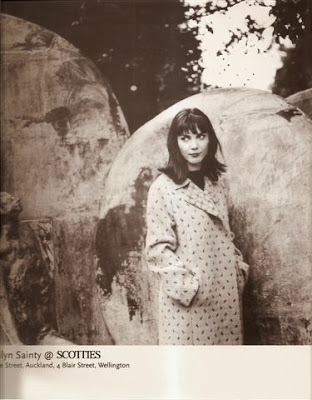Alan Loney. Sidetracks: Notebooks 1976-1991. Auckland: AUP, 1998. [vi] + 81pp.
Robert Creeley’s blurb:
Alan Loney’s work has always been at the cutting edge of New Zealand’s place in world literature.
Always? Like, even before it was written, kind of? Or is it that when you’re talking about cutting into (or out of) world literature, with your edge (as it were), that he was already there. All the time.
He is a poet of international stature, whose mastery has become a resource for us all.
What’s “international stature”? Is that when you’re really tall, or really short? Whatever it is, you do it in lots of countries at the same time. But it’s a resource. For all of us (other poets of international stature, that is) – oblique self-praise, when you break it down.
This book is a consummate instance of his compelling and well-earned authority.
Oh, it’s a consummate instance, is it? As opposed to a partial or temporary instance. But anyway, he’s earned it, right enough. It’s compelling – really.
Sorry for this sidetracking preamble. The problem is that I’m intensely sympathetic to Loney’s project of disintegrating, but I can feel him wanting to be approved of all the time, through it. The poems and fragments accordingly have a tendency to explain themselves, to resolve. Even where one doesn’t (“a fat kid / on a bike”), the next will:
tothe
joinhalves
At the reading at his launch (after an intensely embarrassing intro where we were primed with anecdotes about what a wonderful reader he was), the audience ooh’d and ah’d at particularly plangent lines. I’d have rather they screamed, or at the very least looked indignant.
This is playing it safe, alas. Everyone loves a fragment: it’s integral to the modernist aesthetic, after all.
As I write, in the London bar, a cackling goes up around me as of mad hyenas at feeding time – a realm beyond sight and sound. Why do I put that in? The Twilight Zone. I’m a little disappointed by the book, it’s true, but I can certainly appreciate why Alan Loney has shaken the dust of Auckland off his feet and left for Melbourne.
He’s tired of being regarded as a wild-eyed experimentalist for daring the mildest deviations from the party line: for reading (let alone imitating) the L=A=N=G=U=A=G=E poets; even (at this late date) for entertaining Black Mountaineers. Robert Creeley was only trying to be nice when he wrote that little puff, which is why it’s naughty of me to break it down that way (as if he could care less). It does illustrate the paradox of the book under review, though.
Maybe we expected too much. Alan Loney has given enough. Since he came to Auckland in the early nineties, he’s set up a new printing press; edited an intensely interesting magazine, A Brief Description of the Whole World; and encouraged many, many writers – young and old – stultified by the orthodoxies of the poetry “scene.”
It’s time to stop looking to him, and look to ourselves instead. The pieces in this book are lovely. It’s a beautiful book. I’m going to be reading in it for quite some time. Once and for all it’s time to stop squabbling – wanting to radicalise or calm down the serene (or wild-eyed) Loney of our mind’s eye. Bon Voyage, Alan. Thanks for everything you’ve done for us – as you said at the launch, it’s time to look after number one. I hope it all works out.




No comments:
Post a Comment